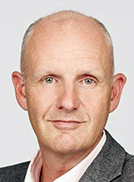DNA sequencing could identify effective treatments for patients with potentially actionable genetic aberrations
In the Netherlands’ precision oncology-network (a network of more than 40 hospitals in the Netherlands), Whole Genome Sequencing (WGS) is offered to systemically treated cancer patients. This allows the identification of a spectrum of potentially actionable genetic aberrations in all types of cancer. The drug rediscovery protocol (DRUP) provides patients with such aberrations access to genetically matched treatment upon central review of the tumor profile. Data presented at ESMO 2017 demonstrate that this kind of precision oncology trial is not only feasible, but also has the potential to identify patient subgroups who could benefit from existing drugs outside of their registered indication.
The protocol currently includes 19 different drugs from 10 pharmaceutical companies. Adult patients with solid tumors, glioblastoma, lymphoma or multiple myeloma, with no standard treatment options, are eligible for the study. Since the trial was launched in late 2016, over 250 cases have been submitted for review: of these, about 70 patients have so far been found eligible and started treatment. The efficacy of the treatment for each cohort is analyzed in a two-stage process: if in stage one, the first group of 8 patients with the same tumor type and genetic mutation responds to the treatment, the cohort is expanded to 24 patients in stage two to get a stronger indication of the clinical benefit. In this study, clinical benefit is defined as either a complete remission, a partial response, where the tumor shrinks by more than 50% or disease stability for at least 16 weeks.
To date, a clinical benefit has been observed in 38% of the trial participants (2 complete responses, 8 partial responses and 7 cases of disease stabilization), and 6 of the 20 study cohorts have graduated to stage two.
This study shows that the execution of a national multi-drug and multi-tumor precision oncology trial is feasible. By performing WGS in many different cancer types, subgroups are identified who may benefit from existing drugs outside of their registered indication. This study hereby accelerates translation of new findings to the clinic and increases the yield of existing therapies. However, this is approach is very expensive, so the trial needs to show that it can be cost-effective.
Reference
van der Velden D, Hoes D, van der Wijngaart H, et al. Expanding the use of approved drugs: The CPCT’s Drug Rediscovery Protocol (DRUP). Presented at ESMO 2017, abstract LBA59_PR.


